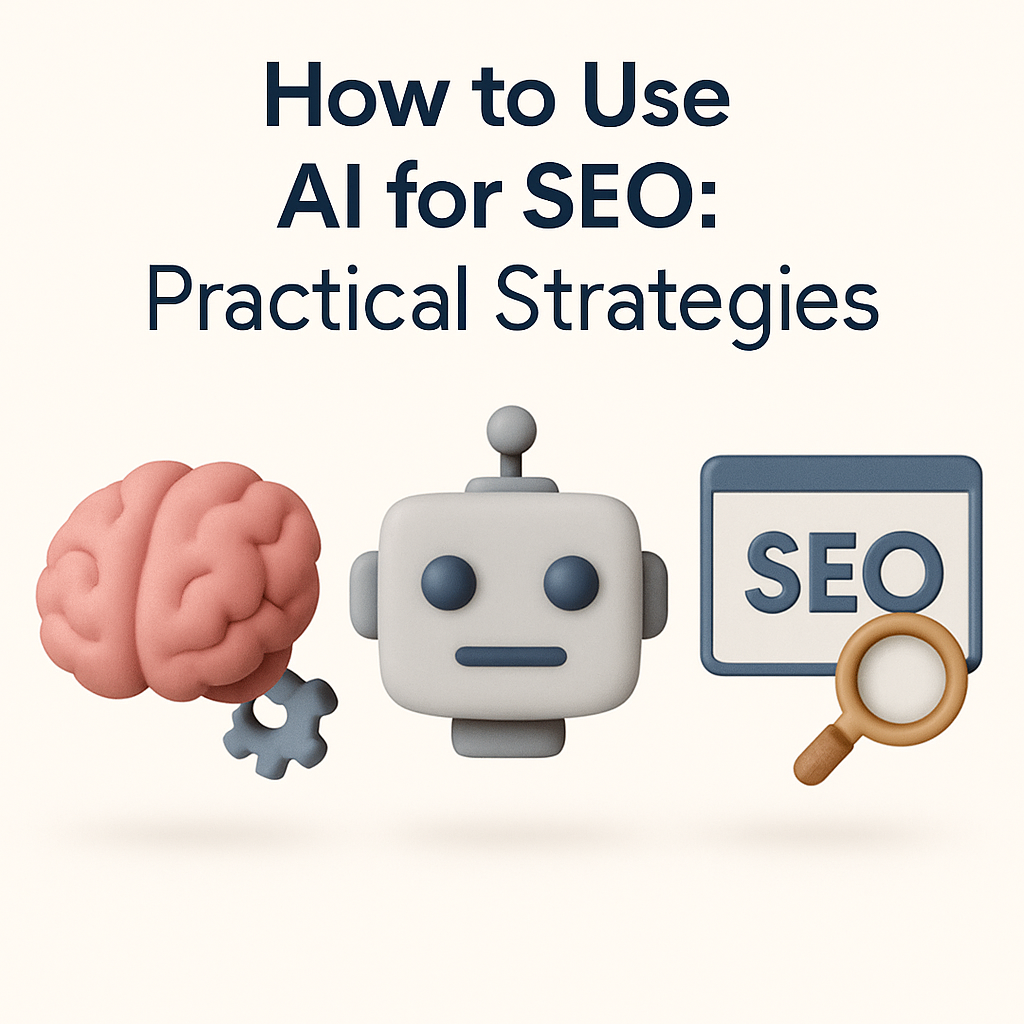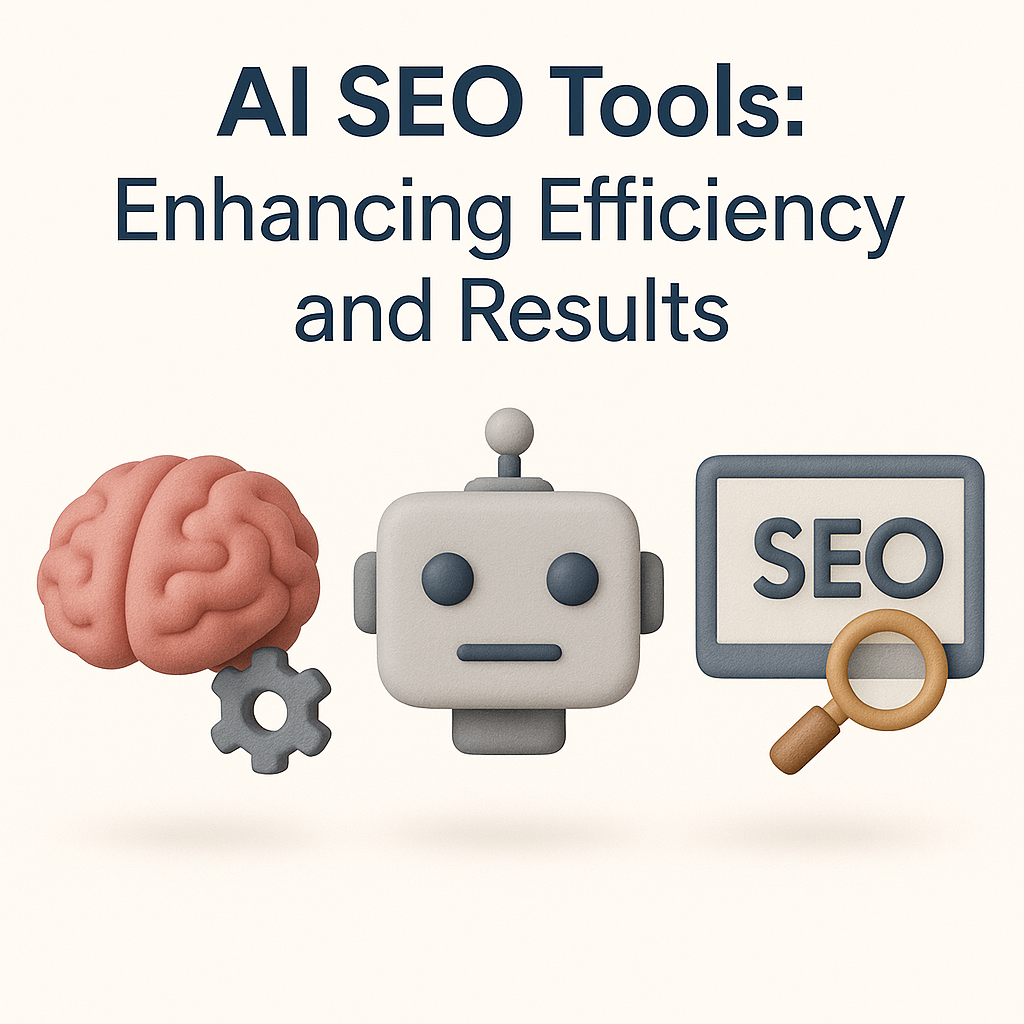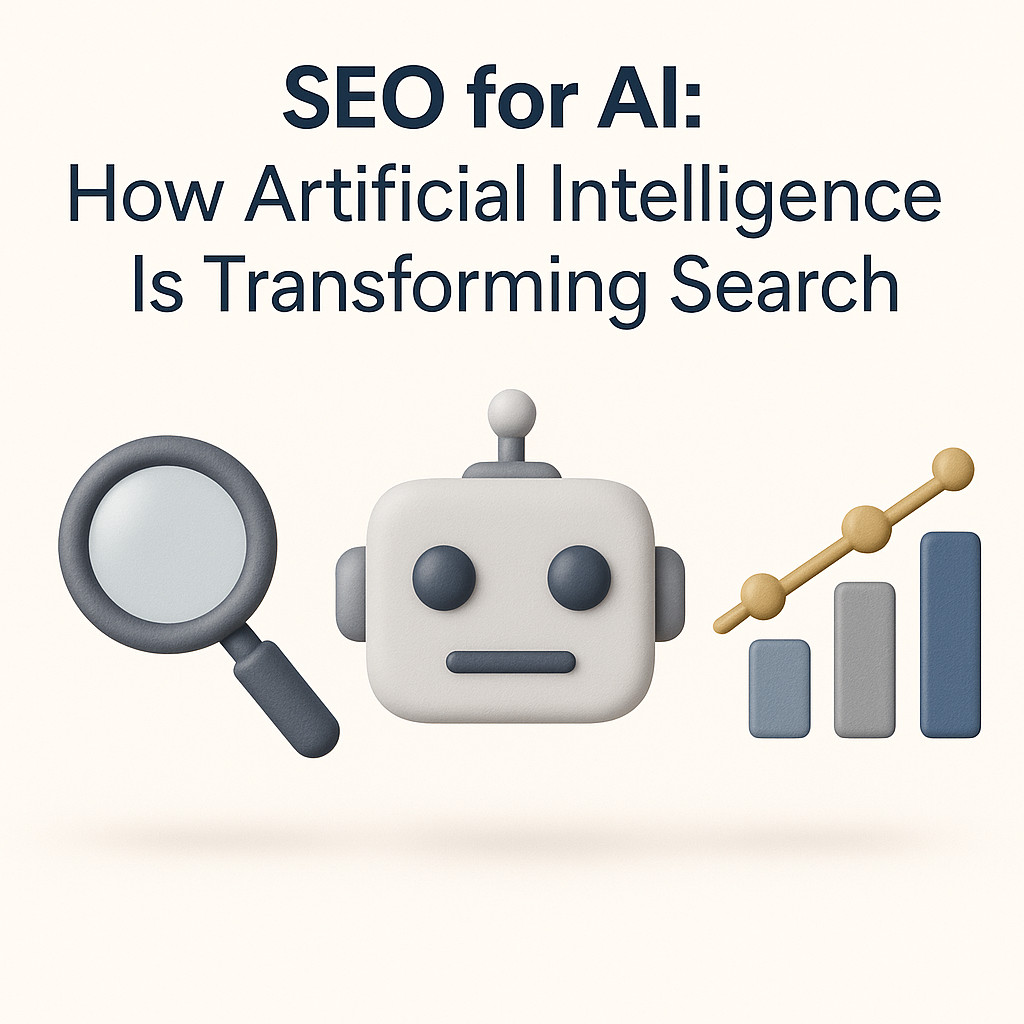The landscape of search engine optimization (SEO) is undergoing a radical transformation, driven by the rapid evolution of artificial intelligence (AI). As search engines like Google, Bing, and emerging AI-powered platforms integrate advanced machine learning and natural language processing, the rules of SEO are being rewritten. For businesses and marketers, understanding how to leverage AI for SEO is no longer optional—it’s essential for staying visible and competitive in the digital age. This comprehensive guide from Upgrade2SEO explores the strategic intent hierarchy, semantic AI, and the new optimization and searching techniques in AI, while providing actionable insights for using AI to enhance your SEO strategy.
The New Era of Search: AI’s Impact on SEO
AI has fundamentally changed how search engines interpret queries, rank content, and deliver results. Traditional SEO relied heavily on keywords and backlinks, but AI-powered search now emphasizes user intent, semantic relevance, and content quality. Google’s RankBrain and BERT algorithms, for example, use semantic AI to understand the context behind search queries, making search results more accurate and personalized.
Why Is AI Important for SEO?
- Enhanced Understanding of User Intent: AI algorithms analyze not just keywords, but the underlying intent behind search queries, delivering more relevant results.
- Continuous Optimization: AI-driven systems adapt in real-time, learning from user behavior to refine rankings and improve user experience.
- Automation of Complex Tasks: AI can automate keyword research, technical audits, and content optimization, freeing up time for strategic planning.
- Data-Driven Insights: Machine learning models process vast amounts of data, identifying trends and opportunities that would be impossible to spot manually.
Strategic Intent Hierarchy: The Foundation of Modern SEO
At the heart of AI-driven SEO is the concept of strategic intent hierarchy. This approach prioritizes understanding the different layers of user intent—informational, navigational, transactional, and commercial—so content can be structured to meet these needs at every stage of the search journey.
- Informational Intent: Users seek knowledge or answers to specific questions.
- Navigational Intent: Users want to find a particular website or page.
- Transactional Intent: Users are ready to make a purchase or complete an action.
- Commercial Intent: Users are researching products or services before buying.
AI search algorithms excel at decoding these intents, allowing marketers to tailor content that aligns with each stage of the strategic intent hierarchy, increasing relevance and engagement.
Semantic AI: Understanding Meaning, Not Just Keywords
Semantic AI is revolutionizing how search engines interpret content. Instead of matching exact keywords, AI-powered search engines use semantic analysis to understand the context, relationships, and entities within content. This means that well-structured, contextually rich content is more likely to rank highly, even if it doesn’t contain exact-match keywords.
- Entity Recognition: AI identifies people, places, brands, and concepts within text.
- Contextual Relevance: Algorithms assess how well content answers the user’s query in context.
- Content Clustering: AI groups related topics, helping search engines understand topical authority.
By focusing on semantic AI, businesses can create content that resonates with both users and AI search algorithms, boosting visibility and authority.

AI Search Algorithms: Methods for Problem Solving
AI search algorithms are at the core of how modern search engines operate. These algorithms use advanced searching techniques in AI to solve complex optimization problems in artificial intelligence, such as ranking billions of web pages in milliseconds.
Types of Searching in AI
- Uninformed Search: Algorithms like breadth-first and depth-first search explore options without prior knowledge.
- Informed Search: Heuristic-based algorithms, such as A* and best-first search, use additional information to find optimal solutions faster.
- Optimization Algorithms for Machine Learning: Techniques like genetic algorithms, simulated annealing, and gradient descent are used to solve optimization problems in artificial intelligence, improving the accuracy and efficiency of search results.
Understanding these types of searching in AI helps SEO professionals appreciate how search engines evaluate and rank content, allowing for more effective optimization strategies.
Optimization Problems in Artificial Intelligence and SEO
Optimization is central to both AI and SEO. In AI, optimization problems involve finding the best solution from a set of possible options, often under constraints. In SEO, optimization means refining content, site structure, and technical elements to achieve the highest possible ranking.
Types of Optimization in AI and SEO
- On-Page Optimization: Improving content, meta tags, headings, and internal linking.
- Technical Optimization: Enhancing site speed, mobile-friendliness, and crawlability.
- Off-Page Optimization: Building high-quality backlinks and improving domain authority.
- Content Optimization: Using AI to suggest topics, keywords, and structure for maximum relevance.
AI-powered SEO tools leverage optimization algorithms for machine learning to automate and enhance these processes, delivering faster and more accurate results.

How to Use AI for SEO: Practical Strategies
Leveraging AI for SEO involves more than just adopting new tools—it requires a shift in mindset and strategy. Here’s how to use AI for SEO effectively:
1. AI-Powered Keyword Research
AI tools analyze search trends, user behavior, and competitor data to identify high-potential keywords and topics. This goes beyond simple volume metrics, focusing on search intent and topical relevance.
2. Content Optimization with Semantic AI
AI-driven platforms suggest improvements to content structure, readability, and keyword usage, ensuring alignment with both user intent and search engine algorithms.
3. Technical SEO Audits
AI automates the detection of technical issues such as broken links, crawl errors, and slow-loading pages, providing actionable recommendations for improvement.
4. Predictive Analytics and Trend Forecasting
Machine learning models predict which keywords and topics are likely to gain traction, allowing marketers to stay ahead of the curve.
5. Automated Link Building
AI identifies relevant backlink opportunities and monitors the quality of inbound links, helping to build a robust off-page SEO profile.
6. Personalization and User Experience
AI analyzes user behavior to personalize content and recommendations, increasing engagement and conversion rates.

AI SEO Tools: Enhancing Efficiency and Results
A range of AI-powered SEO tools are available to streamline and enhance every aspect of your SEO strategy:
| Tool | Key Features |
|---|---|
| Ahrefs | AI-driven keyword research, content gap analysis, technical SEO audits |
| Semrush | In-depth keyword metrics, competitive analysis, trend prediction |
| Surfer SEO | On-page optimization tips, content audits, SEO standards enforcement |
| ChatGPT | Content generation, keyword suggestions, multilingual support |
| Search Atlas | Automated keyword clustering, technical audits, SERP analysis |
These tools use AI search algorithms and optimization algorithms for machine learning to deliver actionable insights and automate time-consuming tasks, allowing SEO professionals to focus on strategy and creativity.
The Importance of AI for SEO: Why You Can’t Ignore It
AI for SEO is not just a trend—it’s a fundamental shift in how search engines operate and how users find information online. The importance of AI for SEO lies in its ability to:
- Adapt to Changing Algorithms: AI-powered tools keep pace with frequent search engine updates, ensuring your strategy remains effective.
- Deliver Better User Experiences: By understanding and catering to user intent, AI-driven SEO enhances engagement and satisfaction.
- Scale SEO Efforts: AI automates repetitive tasks, enabling marketers to scale their efforts without sacrificing quality.
- Drive Measurable Results: Data-driven insights and continuous optimization lead to higher rankings, more traffic, and increased conversions.
Using AI for SEO: Best Practices
To maximize the benefits of AI for SEO, follow these best practices:
- Focus on Quality and Relevance: AI rewards content that is helpful, original, and authoritative.
- Align with User Intent: Structure content to address the full spectrum of the strategic intent hierarchy.
- Leverage Structured Data: Use schema markup to help AI understand your content’s context and relationships.
- Monitor and Adapt: Continuously analyze performance data and adjust your strategy based on AI-driven insights.
- Maintain Transparency: Disclose the use of AI in content creation when appropriate, and ensure human oversight for quality and accuracy.
Conclusion
As artificial intelligence continues to advance, its role in SEO will only grow more significant. By embracing semantic AI, understanding the strategic intent hierarchy, and leveraging the latest searching techniques in AI, businesses can stay ahead of the competition and achieve sustainable search visibility.
Whether you’re optimizing for AI-powered search engines or using AI tools to refine your strategy, the key is to focus on delivering real value to users. By doing so, you’ll not only improve your rankings but also build trust and authority in your niche.
Ready to upgrade your SEO strategy for the age of AI? Start by integrating these principles and tools into your workflow, and watch as your search performance reaches new heights.
Related Posts:
- SEO for AI: How Artificial Intelligence Is Transforming Search
- Unlock Massive Discounts on Hostinger Hosting – Apply Coupon Codes & Save Up to 20%!
- How do I Add a FAQ Schema to WordPress?
- Boost Your Online Visibility with E-E-A-T, AI-Optimized Strategies, and Mobile-First Design
FAQ’s
A: Artificial Intelligence SEO refers to the use of AI search algorithms and semantic AI to help search engines understand the strategic intent hierarchy of users and deliver more relevant search results. AI search methods for problem solving and optimization algorithms for machine learning enable search engines to interpret not just keywords but also the context and user intent, transforming how SEO is done.
A: The strategic intent hierarchy is crucial because it helps marketers understand different layers of user intent—informational, navigational, transactional, and commercial. By aligning content with these intents, SEO strategies become more effective in meeting user needs at every stage of the search journey, improving rankings and engagement.
A: Semantic AI is a technology that allows search engines to understand the meaning, context, and relationships within content, rather than just matching keywords. This helps search engines evaluate the relevance and authority of content more accurately, improving SEO outcomes by focusing on user intent and content quality.
A: AI search algorithms include techniques like breadth-first search, depth-first search, and heuristic-based searches such as the A* algorithm. These types of searching in AI help search engines efficiently rank billions of web pages by solving complex optimization problems in artificial intelligence.
A: In SEO, optimization problems in artificial intelligence involve refining website content, structure, and technical elements to achieve the best possible ranking. Optimization algorithms for machine learning like genetic algorithms and gradient descent are used to automate and improve these SEO tasks.
A: To use AI for SEO, leverage AI-powered tools that automate keyword research, content optimization, technical audits, and link building. These tools apply searching techniques in AI and optimization algorithms for machine learning to improve SEO efficiency and results.
A: The importance of AI for SEO lies in its ability to understand user intent accurately, automate repetitive tasks, and provide data-driven insights. This results in better website visibility, higher engagement, and improved conversion rates.
A: Types of optimization include on-page, off-page, technical, and content optimization. Types of searching in AI consist of uninformed searches (e.g., breadth-first search) and informed searches (e.g., A* algorithm), each suited for different problem-solving scenarios.
A: FAQ schema is a structured data markup that helps search engines understand your FAQ content and display it as rich snippets in search results. This enhances your website’s visibility and can increase click-through rates.
A: Popular AI-powered SEO tools like Ahrefs, Semrush, Surfer SEO, and ChatGPT automate keyword research, content optimization, and technical SEO audits. These tools use AI search algorithms and optimization algorithms for machine learning to provide actionable insights and improve SEO workflows.



